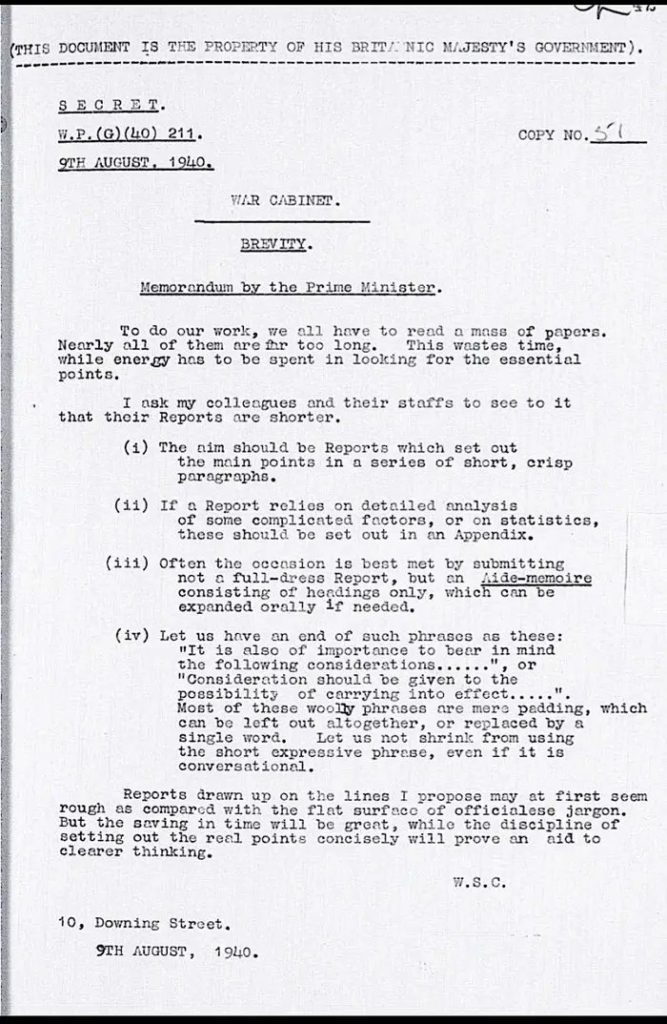In a strikingly candid memo dated August 9th, 1940, Winston Churchill addressed a concern all too familiar in the business world – the needless complexity of documents.
His message was simple and, fittingly, brief: “Brevity.”
Churchill observed a trend of his staff being inundated with lengthy papers, declaring, “Nearly all of them are far too long. This wastes time while energy is spent looking for the essential parts.” This poignant statement from one of history’s most revered leaders underscores the perennial importance of clarity and conciseness in business communications.
I love it…

The memo, preserved as a classic example, urges the elimination of superfluous details and advocates for reports that are “short, crisp paragraphs.” Churchill challenged the status quo of verbose reports, recognising that valuable time and energy were being expended to decipher the critical points buried within.
Churchill’s insight reveals several gems that modern businesses would do well to adopt.
He promotes the use of ‘aide-memoire’, a tool for summarising complex information into manageable headlines that can be elaborated upon if necessary. His call to action against “woolly phrases or mere padding” is a rallying cry for directness and precision.
The significance of Churchill’s memo transcends the era of wartime Britain. With the exponential increase in information, the ability to communicate effectively by distilling complexity into clear, actionable insights has become even more crucial.
As someone who bangs on about clarity to my clients all the time, I think it’s a worthy reminder.
Andy.